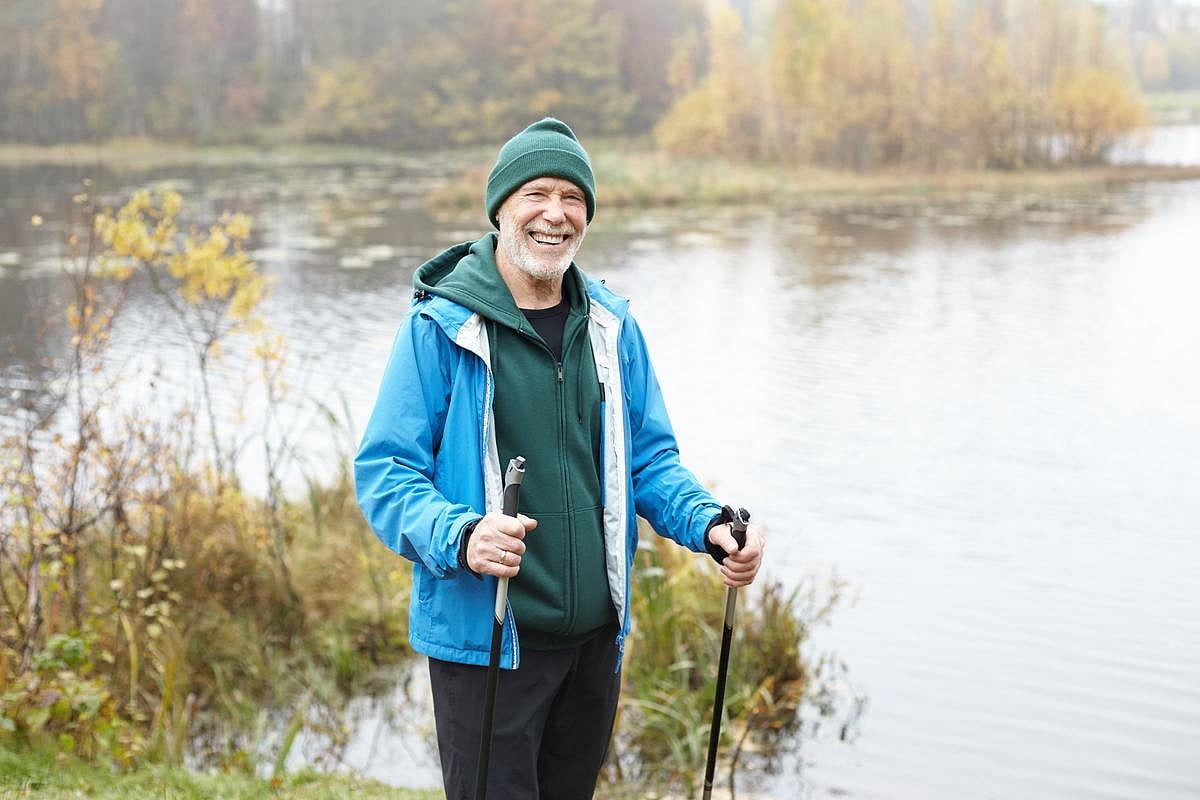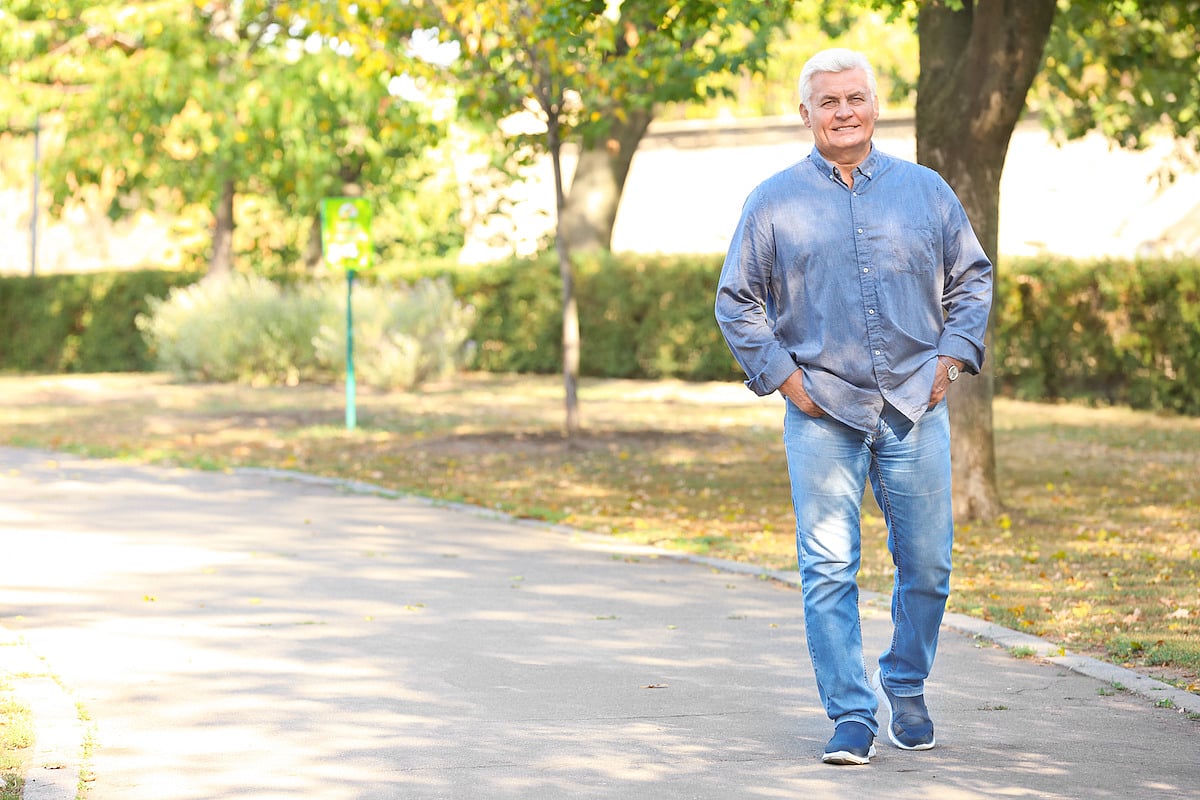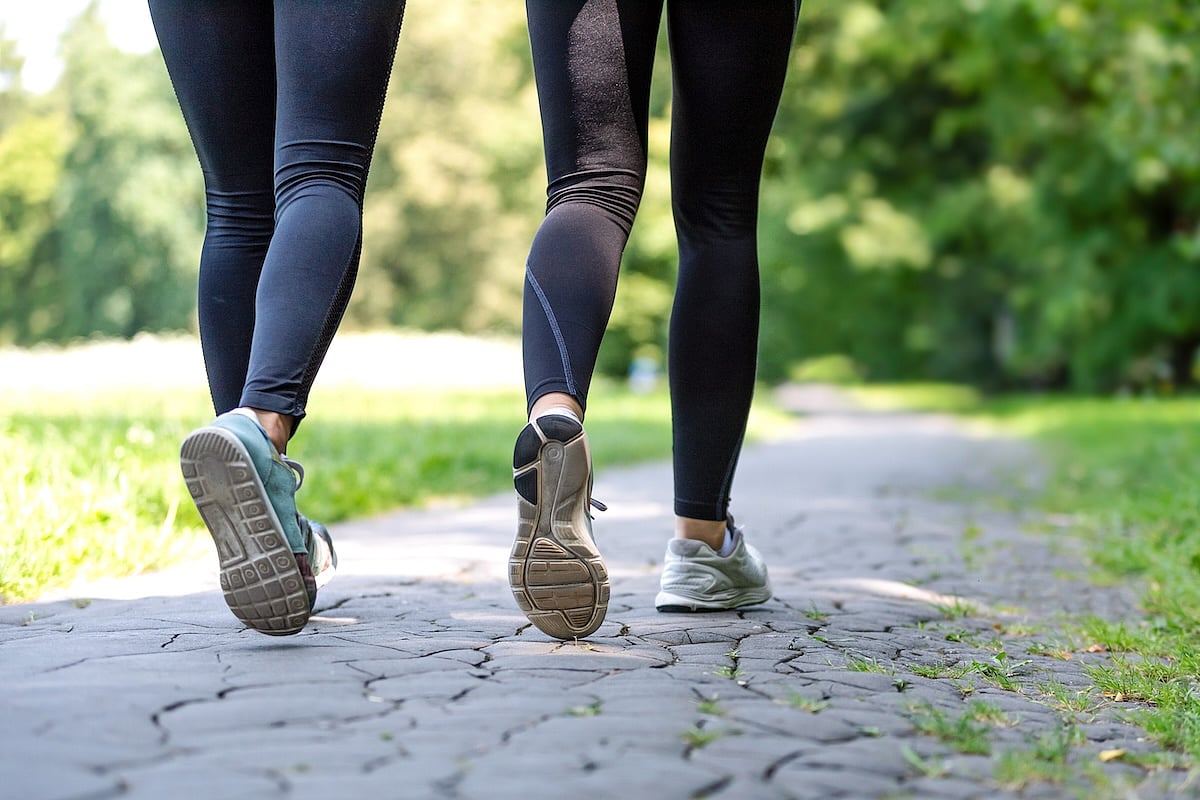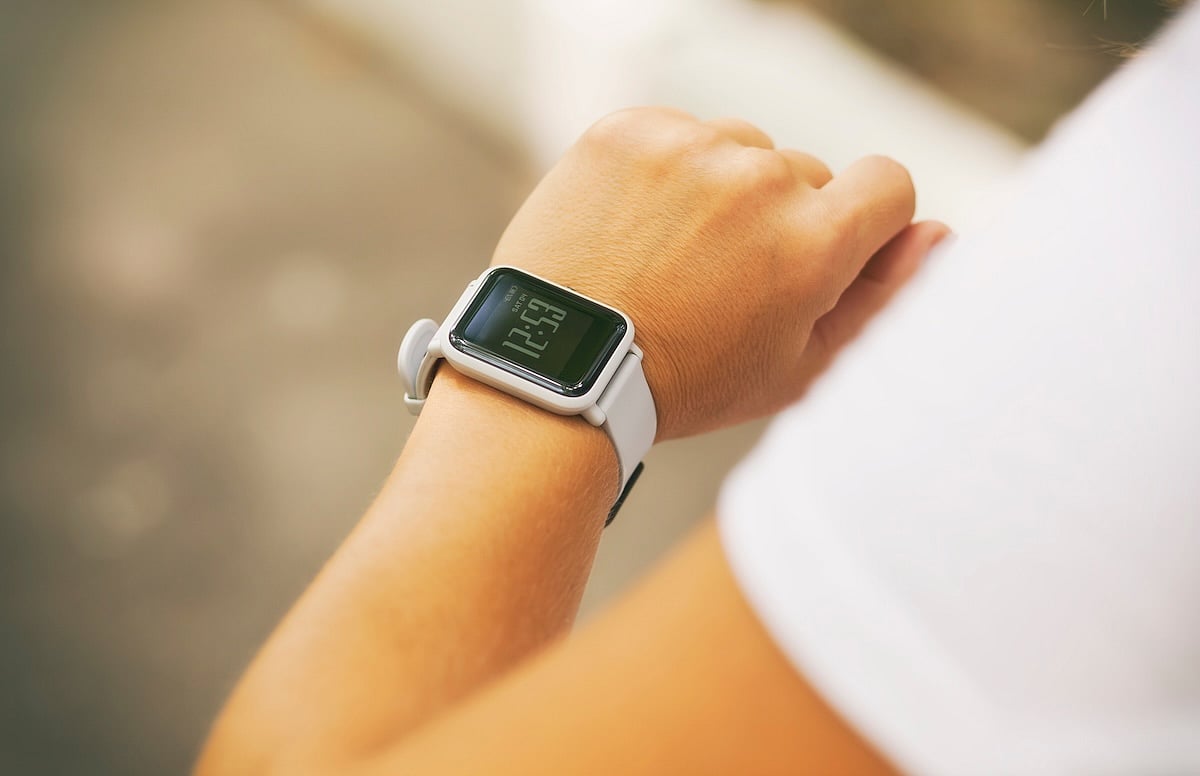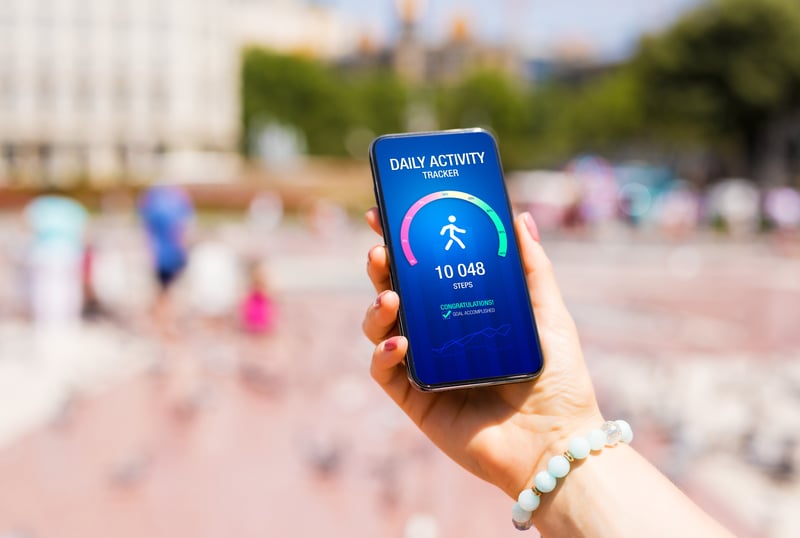Patient Resources
Get Healthy!
Results for search "Exercise: Walking".
31 Oct
One Long Walk Beats a Dozen Little Ones When It Comes to Your Heart
A new study finds taking one 10–15-minute walk lowers heart disease and death risk significantly more than taking several short strolls, even when total steps are the same.
08 Aug
High Blood Pressure? Start Walking Smarter
A new study finds walking more and walking faster cuts the risk of major heart events in people with and without high blood pressure.
Health News Results - 71
Daily Walks Potentially Sabotaged By Diabetes Drug, Study Says
- Dennis Thompson HealthDay Reporter
- November 12, 2025
- Full Page
A common diabetes drug could be sabotaging the health benefits that a patient might expect from a daily walk, a new study says.
Metformin a...
People Do Get More Steps In Walkable Cities, Study Finds
- Dennis Thompson HealthDay Reporter
- August 19, 2025
- Full Page
Cities can be designed in ways that promote walking, providing residents with built-in health benefits, a new study says.
People who live in more walkable cities...
A Small Change In Your Stride Can Ease Knee Arthritis Pain
- Dennis Thompson HealthDay Reporter
- August 13, 2025
- Full Page
Slightly altering your stride while walking could considerably ease pain caused by wear-and-tear knee arthritis, a new study says.
Foot positioning...
Longer, Quicker Walks Protect Heart Health
- Dennis Thompson HealthDay Reporter
- August 7, 2025
- Full Page
Adding distance to your daily walk and picking up your pace can help reduce risk of heart problems associated with high blood pressure, a new study says.
Compare...
Walking for Health? A Faster Pace Boosts Benefits
- HealthDay Reporter
- Ernie Mundell
- July 29, 2025
- Full Page
Want to cut your odds of an early death by almost 20%? Take just 15 minutes out of your day for a brisk walk, researchers advise.
While it’s known that regular walking ...
You Might Not Need As Many Daily Steps As You Think, Review Argues
- HealthDay Reporter
- Dennis Thompson
- July 24, 2025
- Full Page
Walkers don’t need to march 10,000 steps a day to gain substantial health benefits, a comprehensive new evidence review has concluded.
Instead, getting just 7,000 steps a day appears to be most effective in reducing a person’s risk of death and chronic illnes...
Increasing Walk Cadence Counters Frailty Among Seniors, Study Says
- HealthDay Reporter
- Dennis Thompson
- July 21, 2025
- Full Page
Putting a little more pep in the step could help elderly folks improve their health and remain independent, a new study says.
Seven Seconds Can Protect Pedestrians At Intersections
- HealthDay Reporter
- Dennis Thompson
- July 21, 2025
- Full Page
A seven-second head start for pedestrians can save lives and prevent injuries at busy intersections, a new study says.
Pedestrian-related injuries dropped by 33% at crosswalks where New York City rejiggered traffic lights to give walkers those e...
This Common Activity Reduces Risk Of Low Back Pain, Study Says
- HealthDay Reporter
- Dennis Thompson
- June 17, 2025
- Full Page
Struggling with low back pain? Slip on your walking shoes and start hoofing, a new study suggests.
People who walked more than 78 minutes a day were less likely ...
Brisk Walking Lowers Risk Of Heart Rhythm Disorders
- HealthDay Reporter
- Dennis Thompson
- April 16, 2025
- Full Page
Long brisk walks might lower a person’s risk for heart rhythm problems, a new study says.
Folks who stride faster than 4 miles per hour have a 43% lower ri...
Study Finds Better Way For Smartwatches to Track Health
- HealthDay Reporter
- Dennis Thompson
- March 24, 2025
- Full Page
Folks frequently use their smartwatches to monitor their daily step count, aiming to get enough physical activity to improve their health.
But smartwatche...
Walking Exercises Improve Stroke Rehab
- HealthDay Reporter
- Dennis Thompson
- February 21, 2025
- Full Page
Stroke patients leave the hospital with better prospects if they’re forced to hoof it more during recovery, a new study suggests.
Adding a half-hour of progressive walking exercises to sta...
Denser Urban Neighborhoods Get People Walking
- HealthDay Reporter
- Denise Maher
- December 17, 2024
- Full Page
Does a crowded neighborhood make you move more?
Yes, says new research that found people who live in highly populated areas walk more than people who live in less densely populated areas.
As Daily Steps Rise, Depression Levels Fall
- HealthDay Reporter
- Ernie Mundell
- December 16, 2024
- Full Page
Can you literally step away from depression?
A new global review of data found that "increasing the number of daily steps, even at modest levels, was associated with a reduction in depressive symptoms."
The Spanish study found that up to a level of about 10,000 ste...
Just 5 Extra Minutes of Exercise Per Day Could Lower Blood Pressure
- HealthDay Reporter
- Ernie Mundell
- November 7, 2024
- Full Page
It doesn't take much: Adding just five minutes of exercise to your daily routine lowers your blood pressure and might cut your odds for heart disease, new research shows.
“The good news is that whatever your physical ability, it doesn’t take long to have a po...
Six in 10 U.S. Adults Say They Walk for Leisure, Exercise
- HealthDay Reporter
- Ernie Mundell
- July 31, 2024
- Full Page
Almost 60% of adult Americans said they took a walk over the past week for leisure, and maybe even some healthy exercise, a new federal tally finds.
Data from the 2022 National Health Interview Survey, a representative sampling of U.S. households, found that last year "5...
Biking, Walking to Work a Game-Changer for Health
- HealthDay Reporter
- Dennis Thompson
- July 17, 2024
- Full Page
Bicycling to work can vastly improve your health and reduce your risk of death, a new study shows.
People who bike commute have a 47% lower overall risk of an early death, researchers found.
Walking May Do Wonders for Back Pain, Study Finds
- HealthDay Reporter
- Ernie Mundell
- June 20, 2024
- Full Page
If you've recovered from lower back pain, try walking away from a recurrence.
New research out of Australia shows that folks who started a walking regimen kept recurrent back pain episodes at bay for much longer than people who didn't.
"We don't know exactly why wa...
Walking Your Way to Better Health
- HealthDay Reporter
- Dennis Thompson
- April 16, 2024
- Full Page
Walking is one of the best exercises available to average folks, and it can be as easy as stepping out your front door, experts say.
"It is something you can easily fit into your lifestyle,"said Dr. James ...
Even Couch Potatoes Reap Health Reward From 10,000 Steps Per Day
- HealthDay Reporter
- Dennis Thompson
- March 6, 2024
- Full Page
The more steps a person can fit into their day, the lower their risk of early death and heart disease, regardless of how much a couch potato they are otherwise, a new study shows.
People who are sedentary for more than 11 hours a day gain the same health benefits from wa...
Walking, Jogging, Yoga Are All Good Medicine for Depression
- HealthDay Reporter
- Carole Tanzer Miller
- February 15, 2024
- Full Page
Looking for a workout that will chase the blues away?
Try walking, jogging, yoga or strength training, which a new study reports are the most effective exercises for easing depression. These activities can be used on their own or combined with medication and psychotherap...
Your Walking Speed Influences Your Risk for Diabetes
- HealthDay Reporter
- Dennis Thompson
- November 29, 2023
- Full Page
People can walk away their risk of developing type 2 diabetes -- but only if they walk fast enough, a new report finds.
Folks who walk at least 2.5 miles an hour appear to have a significantly lower risk of type 2 diabetes, according to a study published Nov. 28 in the <...
Seniors, 18 Holes of Golf Might Make You Smarter
- HealthDay Reporter
- Cara Murez
- October 18, 2023
- Full Page
Want to do something to protect your thinking skills as you age? Swing that golf club or go for a walk.
A new study found that walking about 3.7 miles or playing 18 holes of golf improved cognitive function. Nordic walking, a type of full-body walking using poles, showed...
Living in 'Walkable' Neighborhoods Lowers Women's Cancer Risk
- HealthDay Reporter
- Cara Murez
- October 6, 2023
- Full Page
Healthy steps: Living in a neighborhood that's easy to walk in could be good for women's health.
New research finds that women who live in walkable neighborhoods have lower rates of obesity-related cancers.
This was particularly true of postmenopausal breast cancer...
Adding Just 3,000 Steps Per Day Could Lower High Blood Pressure
- HealthDay Reporter
- Cara Murez
- September 28, 2023
- Full Page
Adding 3,000 extra steps a day can help older adults with hypertension significantly lower their blood pressure.
About 80% of older adults in the United States have high blood pressure. Keeping it down can help protect against heart failure, heart attacks and strokes.
Great Step for Baby: Walkable Neighborhoods Linked to Safer Pregnancies
- HealthDay Reporter
- Cara Murez
- August 21, 2023
- Full Page
Walkable neighborhoods -- with sidewalks, parks and paths -- encourage pregnant women to get more exercise, which leads to good outcomes for both mom and baby.
New research ...
How Many Daily Steps to Lengthen Your Life? Fewer Than You Might Think
- HealthDay Reporter
- Denise Mann
- August 9, 2023
- Full Page
If you're one of the millions of folks bent on racking up at least 10,000 steps a day, read on.
A new study finds that heart health starts to improve with as few as 2,300 steps a day. The research also indicates your risk of dying from any disease starts to decrease...
Study Confirms it: Texting While Walking Is Dangerous
- HealthDay Reporter
- Sarah D. Collins
- August 9, 2023
- Full Page
It seems obvious that texting and walking can be a dangerous duo, but now a new Australian study offers solid evidence of the dangers.
Emergency room doctors Dr. Michael Levine and
Step Counts Aren't Just for the Healthy: They Also Help Heart Failure Patients
- HealthDay Reporter
- Dennis Thompson
- July 26, 2023
- Full Page
Wearable devices like smartwatches continually track physical activity, urging folks to take more daily steps for their health.
Now, a new study suggests this gentle technological nagging could be of great benefit to people whose hearts are giving out.
Heart failur...
Danger Afoot: U.S. Pedestrian Deaths at Highest Level in 41 Years
- HealthDay Reporter
- Denise Mann
- June 22, 2023
- Full Page
More than 7,500 people were killed last year after being struck by vehicles while walking along or across U.S. roadways -- the most pedestrian deaths in more than four decades, according to a new report.
This sobering trend was not surprising to experts who track the num...
Dog-Walking Downside: Fractures, Head Injuries
- HealthDay Reporter
- Cara Murez
- April 27, 2023
- Full Page
Walking your dog gets you moving and out in the fresh air, but head injuries and fractures are very real possibilities, especially for older dog owners, researchers say.
The most common injury from walking a leashed dog that sends folks to the ER is fractured fingers, a ...
Missed Getting Your Steps Today? You're Still on Track for Health
- HealthDay Reporter
- Alan Mozes
- March 29, 2023
- Full Page
For those who want to get active but feel that joining a gym or exercising on a daily basis is a bridge too far, new research may have found the sweet spot: walking.
After stacking the walking habits of 3,100 adults up against a decade's worth of health outcomes, in...
Scientists Pinpoint Brain Area Needed for Vision-Guided Walking
- HealthDay Reporter
- Cara Murez
- March 22, 2023
- Full Page
A new study hones in on what part of your brain controls walking.
Researchers discovered that two main regions of the cortex were activated as people moved in various ways through an environment. But the occipital place area (OPA) didn't activate during crawling, while t...
Walking & Talking at Same Time: Aging Brain May Make It Tougher
- HealthDay Reporter
- Steven Reinberg
- March 21, 2023
- Full Page
Problems walking and talking or thinking at the same time might be a warning sign of impending dementia, a new study suggests.
Being unable to juggle two tasks simultaneously has been recognized as a sign of mental (or "cognitive") decline after age 65, but this research...
Did the Pandemic Spur Permanent Decline in Americans' Daily Steps?
- HealthDay Reporter
- Amy Norton
- March 21, 2023
- Full Page
If you feel like the pandemic made you a permanent couch potato, a new study shows you're not alone: Well after lockdown measures were relaxed, many Americans were still taking fewer steps each day.
Researchers found that, on the whole, Americans' daily step count plumme...
Could Walks in the Park Ward Off Postpartum Depression?
- HealthDay Reporter
- Amy Norton
- March 9, 2023
- Full Page
New moms who live on tree-lined streets may be somewhat less vulnerable to postpartum depression, according to a new study -- the latest to link "green space" to better mental health.
70 or Older? An Extra 500 Steps a Day Could Do Wonders for Your Heart
- HealthDay Reporter
- Cara Murez
- March 2, 2023
- Full Page
While the idea of getting 10,000 steps a day is bandied about as a good walking goal, that can be intimidating to some people, depending on how fit they are.
Now, new research in adults between the ages of 70 and 90 finds that a much smaller number of steps can ma...
Short Brisk Walk Each Day Could Cut Your Odds of Early Death
- HealthDay Reporter
- Dennis Thompson
- March 1, 2023
- Full Page
A brisk 11-minute daily walk can help you live longer, a new University of Cambridge study reports.
Researchers found that 75 minutes a week -- 11 minutes daily -- of moderate-intensity physical activity is enough to lower a person's risk of heart disease, stroke and can...
Over 40? Just 20 Minutes of Daily Exercise Can Keep You Out of the Hospital
- HealthDay Reporter
- Amy Norton
- February 20, 2023
- Full Page
If you're over 40, regular exercise may not only keep you fit -- it might keep you out of the hospital, too, a large new study suggests.
Researchers found that among nearly 82,000 British adults, those who regularly exercised were less likely to be hospitalized for vario...
Golf Is Healthy Exercise for Seniors, Study Confirms
- HealthDay Reporter
- Denise Mann
- February 7, 2023
- Full Page
Want to stay healthy well into your golden years? Grab a bag of clubs and hit the green, new research suggests.
Golfing beat walking or even Nordic walking (a full-body workout that consists of walking using specialized poles) when it came to improving several key measur...
How Many Daily Steps Do You Need to Lose Weight?
- HealthDay Reporter
- Cara Murez
- January 30, 2023
- Full Page
It's clear that staying active is key to being healthy, and fitness trackers and smartwatches have become popular tools for tracking activity.
But just how many steps does someone need to take to lose weight?
That's not such a simple a question.
While evide...
Step Up! Here's How to Start a Healthy Walking Habit
- HealthDay Reporter
- Cara Murez
- January 30, 2023
- Full Page
Starting a walking routine is simple because it requires so little: comfortable, supportive walking shoes and your own two feet.
Unlike gym workouts, the initial expense is small and the schedule is flexible.
"Walking's a great way to work out because we ca...
Women, Keep Moving to Help Keep Mental Decline at Bay
- HealthDay Reporter
- Cara Murez
- January 26, 2023
- Full Page
A lot of people wear watches that count their every step as they try to move more.
Now, a new study finds that getting more of those steps each day, along with moderate-to-vigorous physical exercise, could cut the risk of dementia and thinking impairments for women.
...More Steps Per Day, Lowered Odds for Diabetes in Women
- HealthDay Reporter
- Cara Murez
- December 23, 2022
- Full Page
Move your body every day to guard against type 2 diabetes.
That's the upshot of a new study that analyzed Fitbit data and type 2 diabetes rates from participants in a nationwide research program, reporting that women who logged more steps each day had a lower risk of dia...
Hate Long Workouts? 'Activity Snacks' May Work for You
- HealthDay Reporter
- Denise Mann
- October 25, 2022
- Full Page
Taking a quick walk or doing squats after you eat may help you retain muscle mass as you age, new research suggests.
So-called "activity snacks"-- short bouts of exercise -- may help maintain muscle mass and quality by allowing your body to use more
Counting Steps? Here's How Many You Need to Boost Health
- HealthDay Reporter
- Amy Norton
- October 17, 2022
- Full Page
Taking that often-cited 10,000 steps a day -- or even slightly fewer -- may indeed be enough to improve your health, a new study suggests.
Researchers found that among 6,000 middle-aged and older adults, those who got at least 8,000 to 9,000 steps daily had reduced risks...
Fitness Trackers Could Get You Stepping More -- Even If You Don't Look at Them
- HealthDay Reporter
- Cara Murez
- September 30, 2022
- Full Page
Wearing a fitness tracker may help you get more steps in -- even if you never give it a glance.
A new study found that folks who wore a pedometer averaged 318...
How Many Steps a Day (and How Fast) to Lengthen Your Life?
- HealthDay Reporter
- Steven Reinberg
- September 13, 2022
- Full Page
There's an easy way to reduce your risk for dementia, heart disease and cancer: Start walking.
Getting in those recommended 10,000 steps a day makes a real difference, new...
Getting Kids Walking, Biking to School Can Lead to Long-Term Fitness
- HealthDay Reporter
- Sydney Murphy
- September 9, 2022
- Full Page
Kids who walk, skateboard or ride their bikes to school when they are young are more likely to keep it up as they get older, reaping the health benefits, recent research suggests.
"The walk to school is a wonderful moment in the day that provides children a glimpse of li...
Exercise Rates Still Haven't Recovered From Pandemic, Global Study Shows
- HealthDay Reporter
- Cara Murez
- September 1, 2022
- Full Page
The COVID-19 pandemic stopped people in their tracks, reducing their physical activity. And daily "step counts" still haven't reached previous numbers, according to a new study.
Researchers from the University of California, San Francisco examined worldwide trends in ph...

